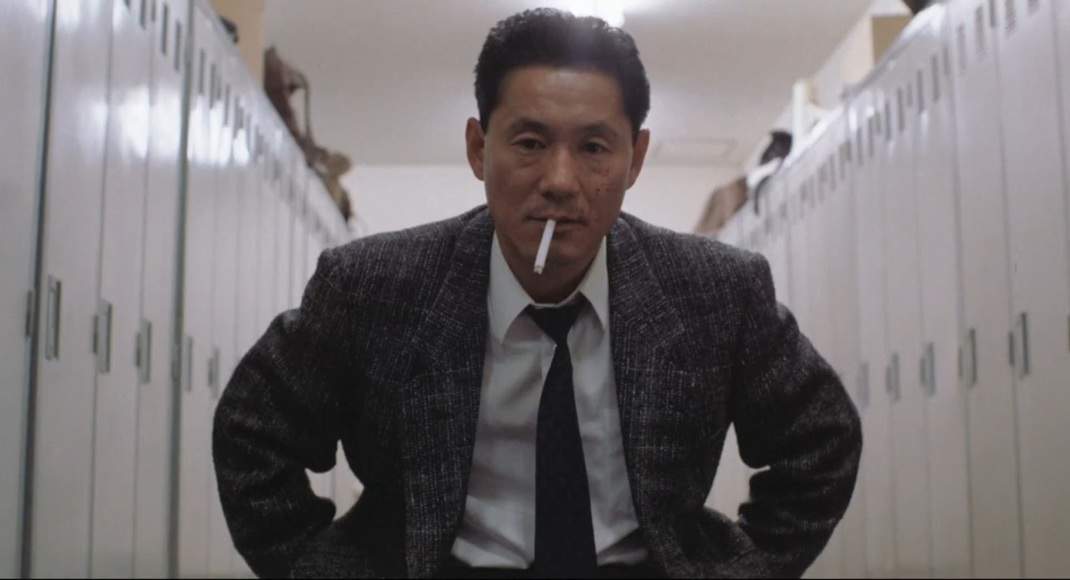Billed as inspired by “The Postman Always Rings Twice”, “Mourning Wife” is essentially a noir drama, and one of the most sensual pink films we have seen recently.
By Using the code AMPFriend, you get a 25% price-off on all products of the website including subscription
Tomoko, the wife of a handicapped and impotent man, Mamoru, is tasked with both taking care of him and running their failing printing business on her own. Furthermore, Mamoru's mother has just died, something that has added to his overall stress, which has led him into a severe kind of depression. Tomoko eventually suggests to hire someone to help her with the printing business, something that eventually happens, despite Mamoru's protests. Ryuzo is a drifter, who quickly realizes the situation in the house, and the sex-depraved Tomoko cannot do much to counter his advances, with the two becoming lovers. Furthermore, it is also soon revealed that Tomoko retains a lesbian relationship with Kyoko, Mamoru's doctor. When the affair is revealed to Ryuzo, violence ensues, but the result is for Tomoko to really open up, as the two fall in love. Eventually, Kyoko asks Ryuzo to murder her husband but Mamoru realizes that she has an affair.
The erotic triangle that is soon formed between Mamoru, Tomoko and Ryuzo is the main element of the narrative, which also allows Daisuke Goto to present a number of social and philosophical comments. The concept of masculinity and the ways being impotent can ruin a man is well presented through Mamoru, whose bitterness due to his situation finds the only way out in him lashing out to his wife, and asking sexual favors he cannot complete. And while he is excellently portrayed as a victim of his circumstances by Yoshikata Matsuki, eventually, the real victim is revealed to be Tomoko, who has taken up a burden she never wanted, as she feels trapped between her sense of duty and her indecision to leave. Through her character, Goto makes a comment about the place of women in Japanese society, with the final interaction with Mamoru's sister highlighting this aspect even more. Kyoko provides some relief, but the turning point is the appearance of Ryuzo, which changes the balance between the three of them radically.

Goto uses the stairs that connect the printing house with the living quarters upstairs as one of the key elements of the narrative, in a style that kind of winks to “When a Woman Ascends the Stairs”, although through a rather different approach. Tomoko has the back-breaking job of carrying her husband on her back soon but soon gives her stead to Ryuzo, while a scene where Mamoru takes revenge in that regard in the only way he knows, emerges as both funny and quite dramatic. The stairs become a central narrative point also later in the film, with Goto essentially presenting it as a passage between life and death, and a comment about how one can never play with fate. Masahide Iioka's cinematography finds its apogee in the presentation of this aspect, in an overall great work that also is exceptional in the presentation of the sex scenes.
And talking about those, “Mourning Wife” truly thrives in that regard, with the sex scenes being rather numerous, well-shot and particularly sensual, taking full advantage of the appearance of Koharu Yamasaki as Kyoko, Mayuko Sasaki as Tomiko and Keisaku Kimura as Ryuzo. Goto also uses the sound of the printing machines to add to the tension particularly the initial, reluctant mating includes, in another intelligent “trick” that also adds to the narrative, since the silencing of the machines during Tomoko and Ryuzo's later intercourse essentially allows Mamoru to realize what is happening, as the two are lost in their passion and they stop being careful.

Drama, noir, and eroticism come together quite artfully in “Mourning Wife”, in a rather impressively shot and acted production that manages to provide multileveled entertainment and much context in less than an hour.















